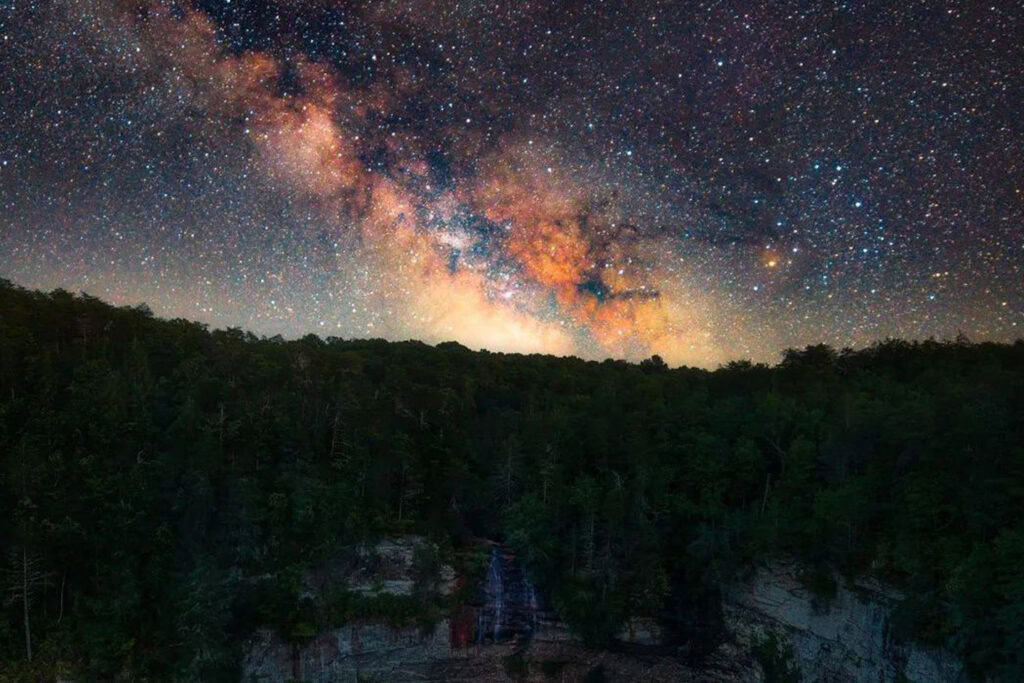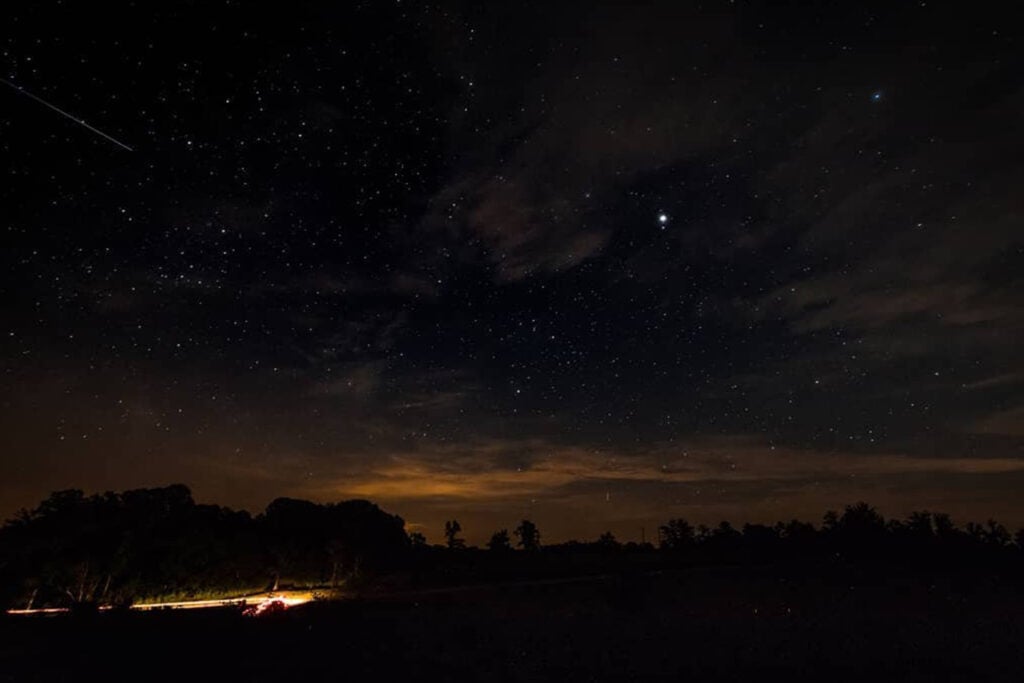For fans of astronomy, you’re in luck—the Scenic City offers plenty of spots for stargazing, as well as organizations that host stargazing parties and other helpful events. So, if you’re looking for things to do in Chattanooga this weekend, we’ve compiled a list of some of the best areas for stargazing in Chattanooga to see out-of-this-world views. Grab your telescope and get ready to reach for the stars!
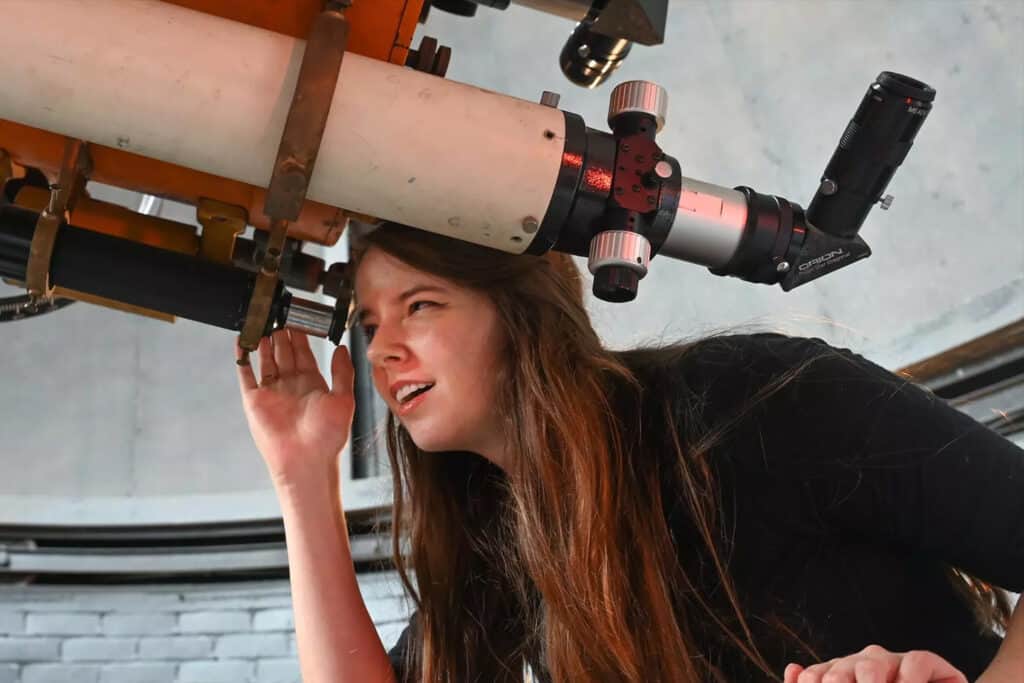
Clarence T. Jones Observatory
The Clarence T. Jones Observatory was built for the Chattanooga school system and finished construction in 1936. Located at 10 Tuxedo Avenue, just four and a half miles from UTC’s campus, the observatory offers open houses and star parties on select nights throughout the school year. These events are free and open to the public, and they often include lectures on astronomy, a planetarium show, an opportunity to look through the historic telescope, and much more.
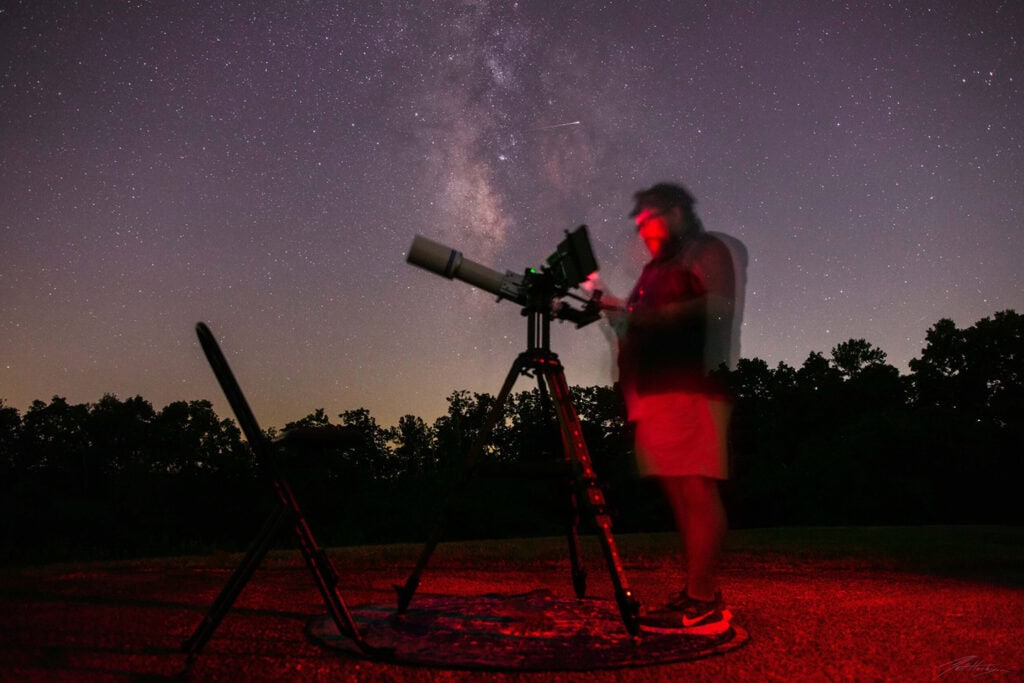
Barnard Astronomical Society
The Barnard Astronomical Society is a nonprofit organization based here in Chattanooga, and they meet on the second Thursday of each month in the Clarence T. Jones Observatory. At these meetings, members present on different astronomy topics, from celestial bodies to how to use stargazing equipment, like a telescope. These society meetings are free and open to the public, and some monthly meetings may include a planetarium show. The Barnard Astronomical Society also hosts different events throughout the year, such as free star parties and telescope workshops.
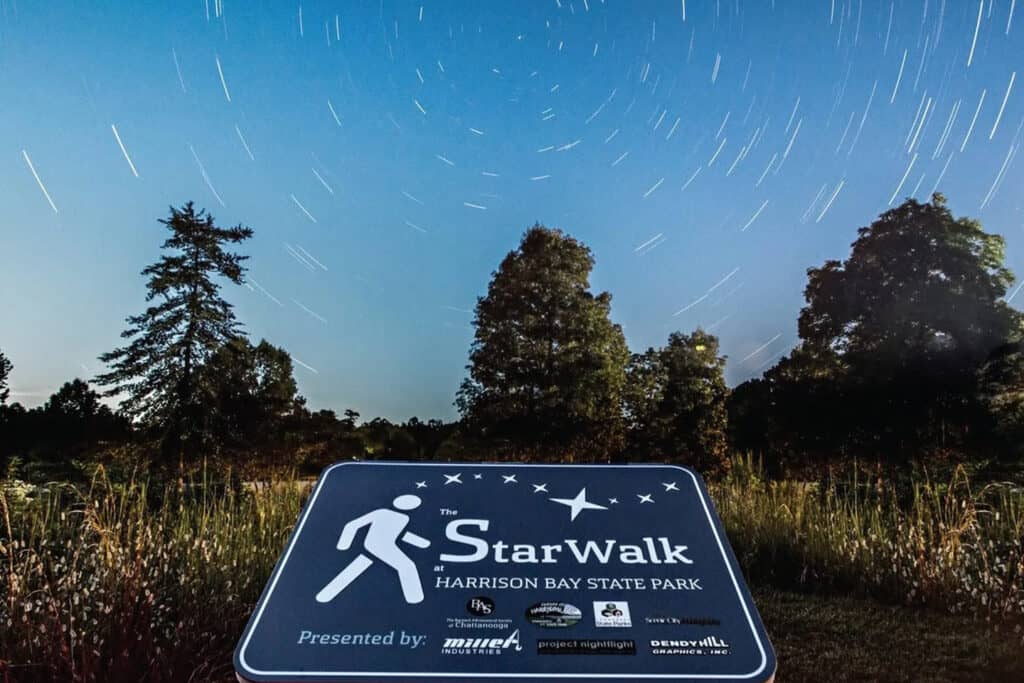
Harrison Bay State Park
Just 30 minutes from downtown Chattanooga, Harrison Bay State Park offers prime area for stargazing. While the park’s 1,200 acres and distance from downtown already create the perfect recipe for stargazing, the park also features The Star Walk, a self-guided tour that was created as a partnership between the park and the Barnard Astronomical Society. Featuring 13 different observation stations along a half-mile gravel path, visitors can enjoy seeing planets, constellations, and galaxies with the naked eye—no telescope needed!
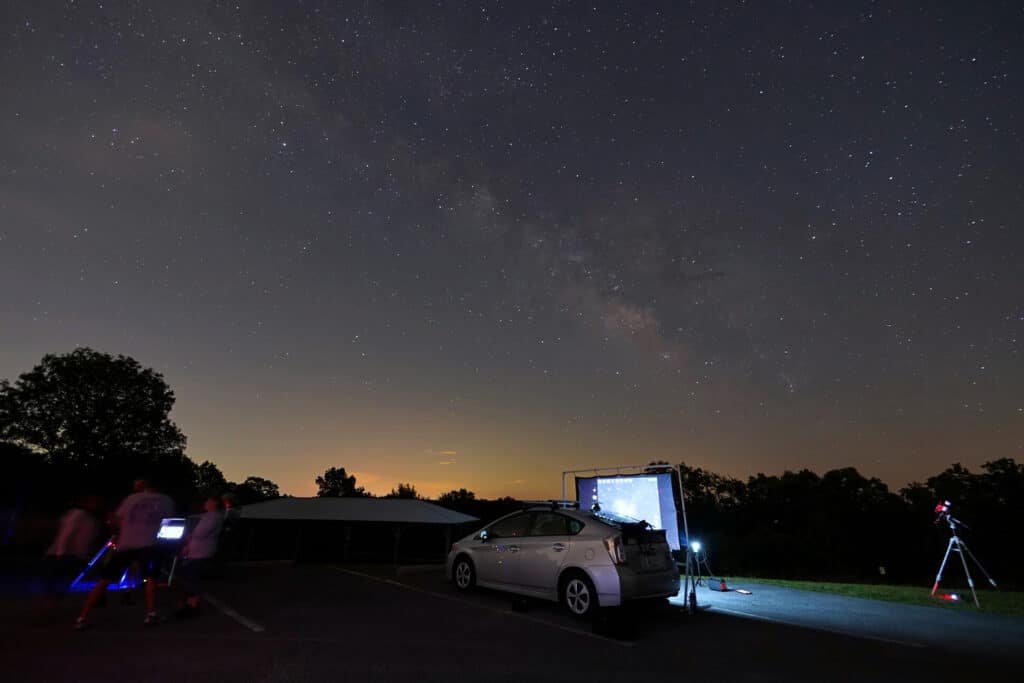
Cloudland Canyon State Park
Another state park, Cloudland Canyon is just over the state border in Georgia, about 30 minutes from downtown Chattanooga. Located on the western edge of Lookout Mountain, the park offers a stunning canyon view, as well as plenty of space for stargazing opportunities. If you’re lucky, you can catch one of the Barnard Astronomical Society’s star parties at this park. Just don’t forget to pay the state park’s $5 parking fee when you arrive.
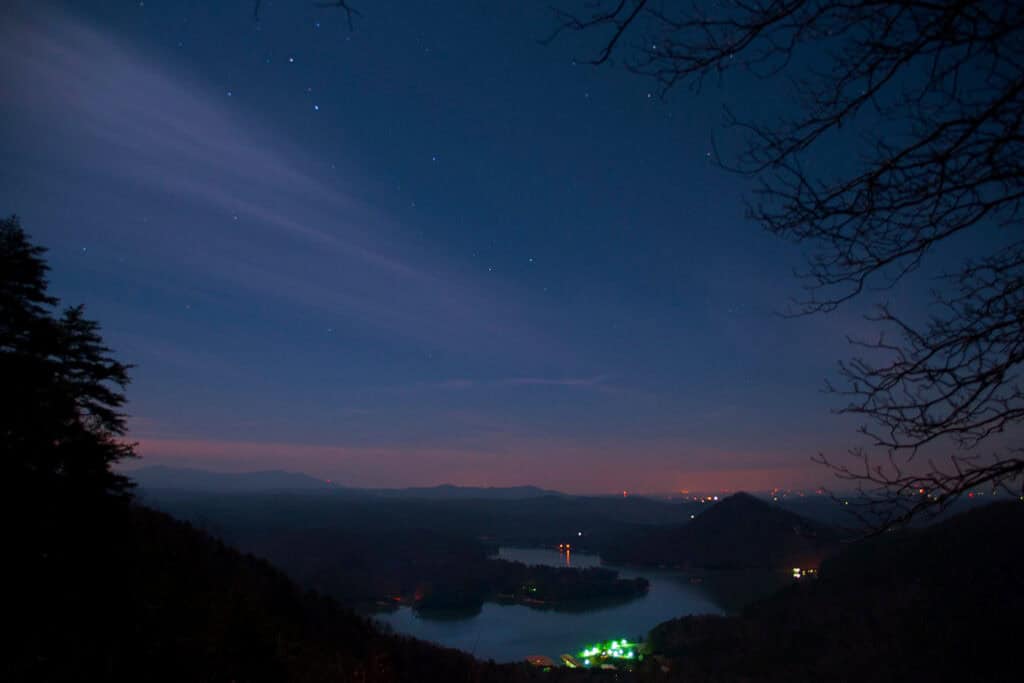
Chilhowee Overlook
For those that don’t mind more of a day trip, there are several great spots for stargazing just outside of Chattanooga—one of which is the Chilhowee Overlook. Located off of Oswald Road in Benton, Tennessee, this overlook is around an hour from downtown Chattanooga. With plenty of onsite parking, this scenic overlook offers views of the Ocoee River, Parksville Lake, and surrounding mountains during the day and optimal views of the night sky in the evening.
Fall Creek Falls State Park
Also an hour from downtown Chattanooga in Spencer, Tennessee, is Fall Creek Falls State Park, one of the state’s largest and most-visited state parks. With 29,800 acres located across the Cumberland Plateau, Fall Creek Falls offers plenty of clear, unpolluted skies for a stargazing experience. Throughout the year, Fall Creek Falls occasionally hosts star parties, astronomy weekends, and other space-related activities, so be sure to check the park’s event calendar before planning your stargazing trip.
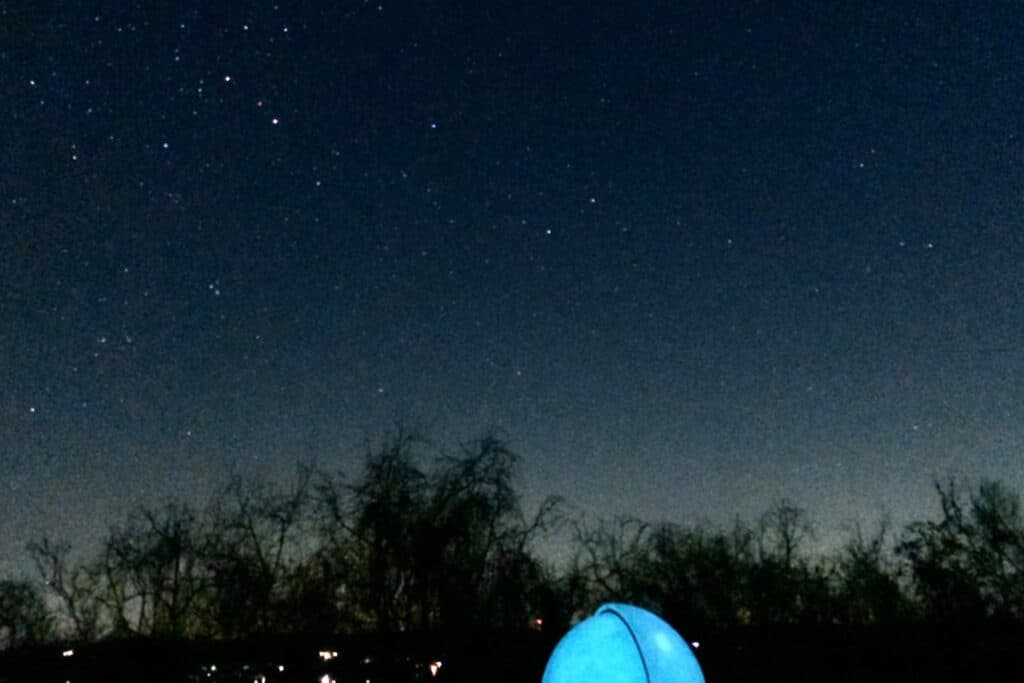
Tamke-Allan Observatory
An hour and a half from downtown Chattanooga, star lovers can visit the Tamke-Allan Observatory for a night of stargazing. Located on the grounds of Roane State Community College, the Tamke-Allan Observatory offers public stargazing opportunities several times each month, as well as other events, like telescope making for students, amateur astronomers, and visitors.
Pickett CCC Memorial State Park
For those looking for a real stargazing adventure, make the two and a half hour trek to Pickett CCC Memorial State Park in Jamestown, Tennessee. In 2015, Pickett was named a Silver-tier International Dark Sky Park, making it the forest state park in the Southeast to be a certified dark sky viewing location by the International Dark-Sky Association. Head to the state park to stargaze on your own, or check the park’s event calendar for astronomy days and viewing parties throughout the year.
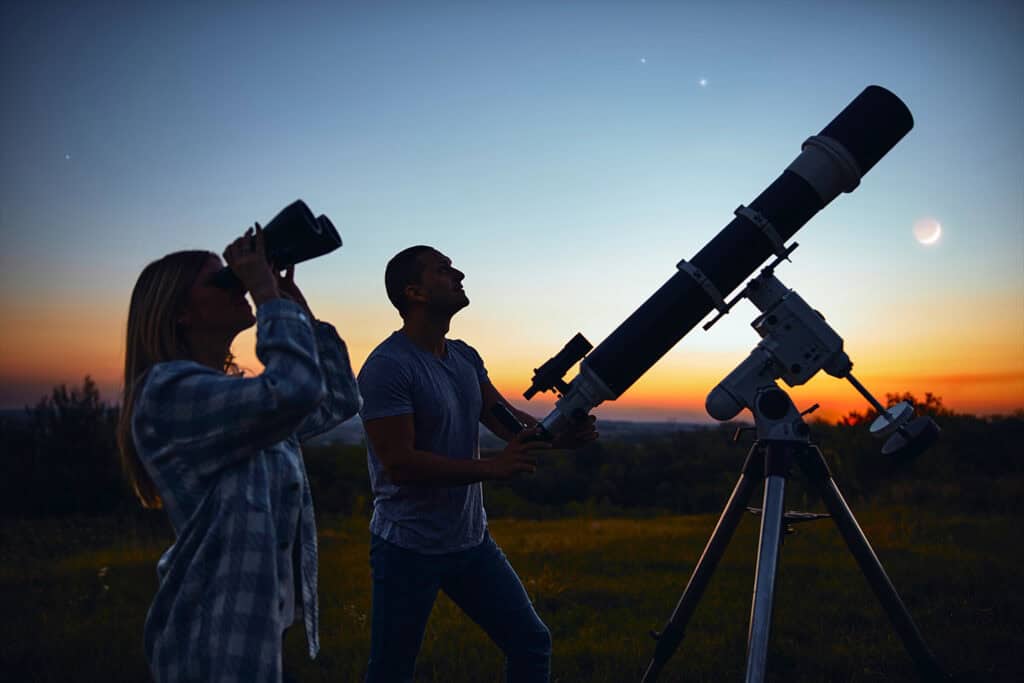
Stargazing Equipment
If you’re planning a stargazing trip, it’s important to have the right equipment! While some celestial phenomena can be seen with the naked eye, others might require the assistance of a telescope or binoculars. If you’re going stargazing, consider bringing:
- Warm clothing: It’s bound to get chilly when you spend all night outdoors looking at the stars. Make sure to wear plenty of warm clothing to protect yourself from the cold temperatures.
- Telescopes: A telescope will help you see far-away celestial objects that you can’t observe with the naked eye. The Barnard Astronomical Society offers presentations on beginner telescope basics.
- Binoculars: Don’t have a telescope? No problem. Binoculars offer a cheaper option for stargazing, and they’ll still help you see star clusters and planets that are further away.
- Star charts: These charts are maps of the night sky that help you identify celestial objects. While you can buy a physical chart, mobile apps offer a free and convenient way to navigate the night sky.
- Chairs or blankets: For the optimal stargazing experience, make sure to bring a comfortable chair or blanket to relax in while you enjoy the night sky.




